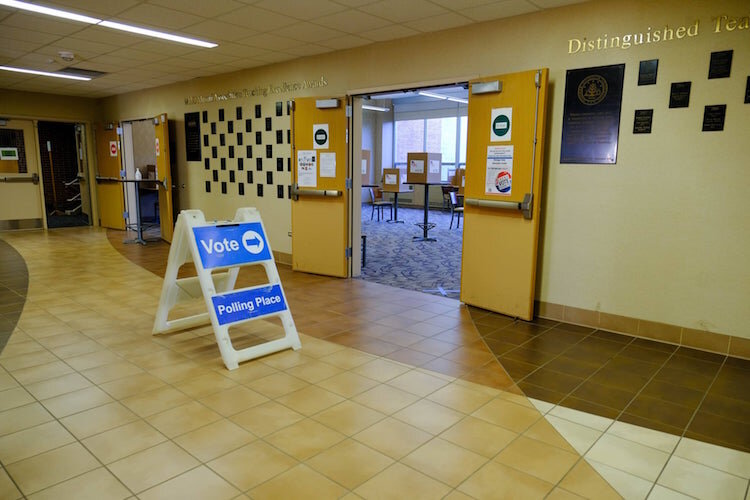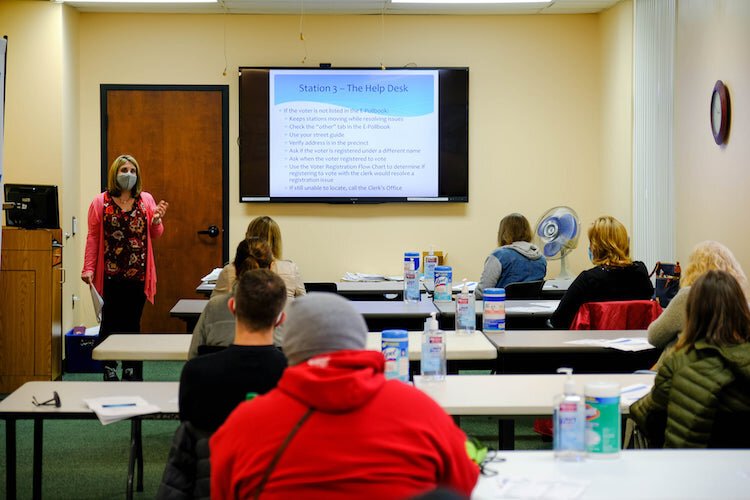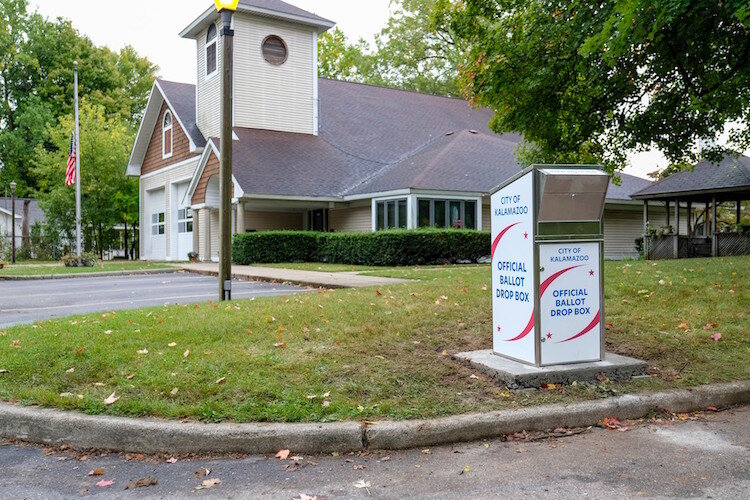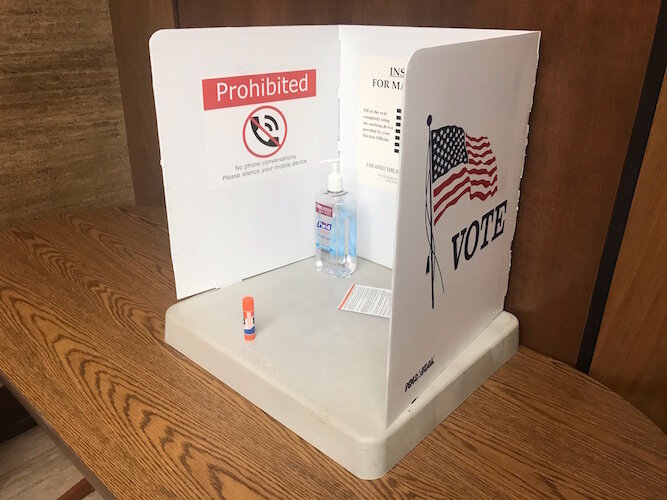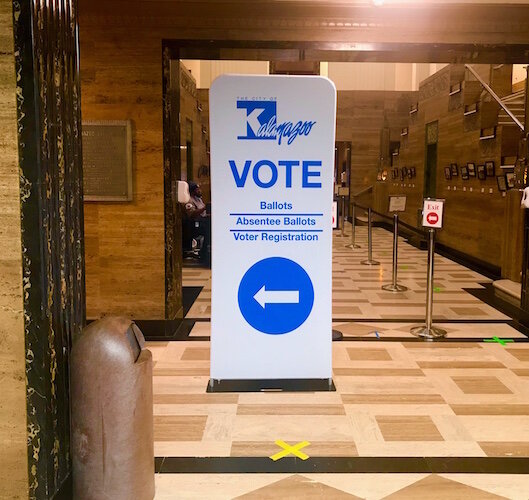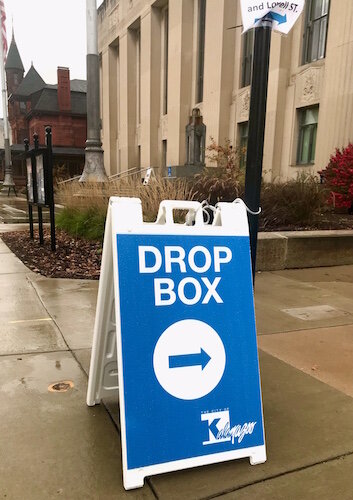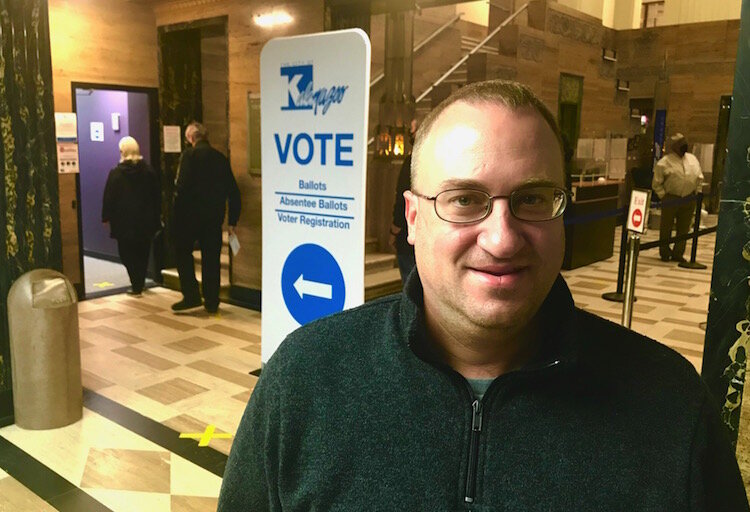Extra officers and proactive efforts are Kalamazoo’s strategy for potentially tense election day
What will the Nov. 3 general election day look like? The Kalamazoo City Clerk's office and Kalamazoo Public Safety are working together to prepare for it.
Getting your Trinity Audio player ready...
Editor’s note: This story is part of Southwest Michigan Second Wave’s On the Ground Kalamazoo series.“We know on the national scene what the rhetoric is – the intimidation and the threatening,” Kalamazoo Public Safety Chief Vernon Coakley says of the potential for election day to be a powder keg of civil unrest and safety problems.
Early and absentee voting in the Nov. 3 general election has already been marred by the appearance of gun-toting right-wing militia groups in some cities, emboldened by President Donald Trump, who is trying to cast doubt on the integrity of election polling and calling for an “army” of his supporters to monitor contested elections.
But Coakley says, “We won’t have any intimidation or threatening gestures at any polling station.”
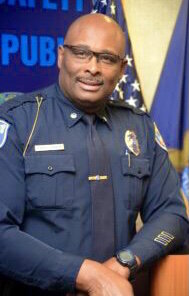
Four weeks after taking the helm of the city’s police force, Coakley says, “We have additional staffing that we’re going to put on for Nov. 3 – particularly and solely for election day.”
He says officers won’t be stationed at any particular polling station. But he says, “We will be proactive. We will be reactive to calls for service particular to polling stations about any situation that needs to be mitigated.”
Officers will have maps to direct them to the city’s 27 polling stations. And as situations arise, “We will send a supervisor and an officer, depending on the situation, to get over there and mitigate the situation,” Coakley says.
He says officers’ priority is to make sure polling places are rendered safe and, “We want to make sure people have a safe environment to exercise their civic duty and that’s the right to vote.”
He also says, “We don’t want to make arrests. We want to educate people on whatever that situation may be first.”
Kalamazoo City Clerk Scott Borling says, “We’re working closely with the Kalamazoo Department of Public Safety to make sure people have access to their voting precincts – that they’re able to get in, cast their vote safely and that there aren’t going to be any barriers there.”
He says the city has 27 precincts voting at 19 different locations. “So there’s eight locations that have two precincts voting,” Borling says.
Coakley says officers will not be stationed at any of the precincts to avoid having their presence be a deterrent to people who want to vote. But Borling says, “We’re working closely so that they’re ready to respond to an actual situation if it happens.”
Of the volume of absentee and early voting, Borling says, “It is very much up.” Through Tuesday morning, he says, “We’ve issued about 20,400 ballots (ballots sent to people). Prior to 2020, the largest number of absentee ballots we had ever processed for an election – when everything was said and done – was 6,800.”
He is encouraging those who meet voting qualifications (18 years old, a U.S. citizen, and a resident of Kalamazoo) to come to the Clerk’s Office in Kalamazoo City Hall to vote early. With proof of residency, unregistered individuals may register to vote at their city or township clerk’s office, up to and on election day. That is a change from the presidential election in 2016 when voter registration closed 30 days before the election.
“That’s an option you’ve never had before 2019,” Borling says.
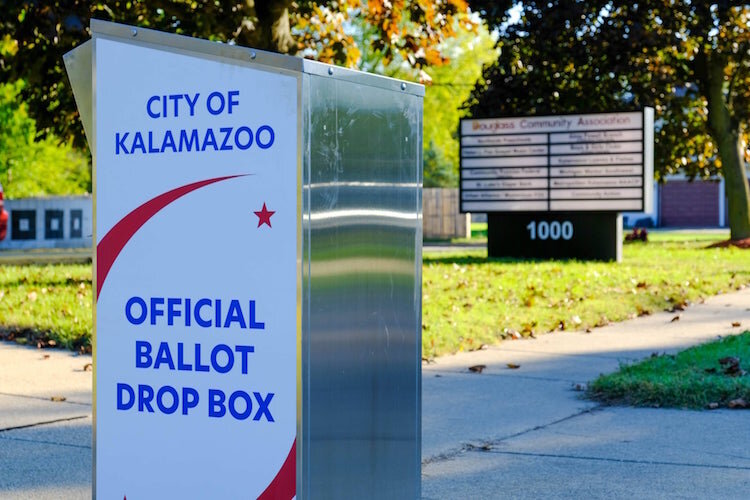
He says public observers, called poll watchers, are allowed at the precincts. And his precinct workers will make sure they adhere to the rules involved in that.
Poll watchers have to keep to themselves and stay in an area that is designated as a public area, Borling says. They can’t talk to voters. And in keeping with efforts to avoid the spread of COVID-19, he says, “We can require poll watchers to be wearing masks and we can require them to social distance. That is something we’ll be looking at.”
Almost anyone can be a poll watcher, Borling says, and they don’t have to register ahead of time “because voting is a public process and it is open to public observation.”
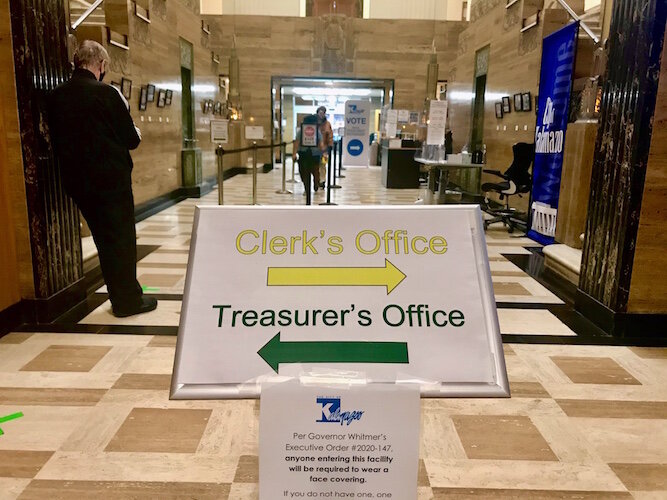
While there is no specified limit on how many poll watchers may be at any precinct, Borling says, “They can’t interfere with the process of voting. There can’t be so many of them that they actually have a negative impact on the process of voting.”
He says his office has not gotten any inquiries from individuals who want to do that thus far.
Voting stations may also be visited by people called challengers.
“A challenger is someone that’s appointed by a political party or by a group or organization that is committed to the purity of the democratic process – is how it’s worded in the law,” Borling says. “Those challengers can actually be behind the tables where voters are being processed. And they can observe. If they think that poll workers are doing something they shouldn’t, they can issue a challenge — challenge the process and take it up with the precinct chairperson.”
They may include representatives of the political parties as well as representatives of organizations like the NAACP and groups of attorneys. They are not supposed to interact with voters or interfere with the voting process. And with the exception of representatives from political parties, challengers for the upcoming election have to register by this Friday.
Borling says poll workers will try to be non-confrontational if someone arrives with a gun. Voting stations are not categorically gun-free zones. “It really comes down to what kind of facility the polling stations are in,” Borling says. Some are in churches, schools, and other community buildings. “So for each one, the rules are a little bit different on whether you can open carry (a firearm) or not or whether you can carry a concealed weapon or not.”
For those worried about the veracity of voting in an environment with intense partisan fighting and with so many people using absentee voting to avoid exposure to the coronavirus, Borling says, “The process for absentee voting hasn’t changed since the time I’ve been here (15 years). We still do the same types of checks and balances in terms of making sure that ballots are checked in and that there’s a list of ballots that have been received. We have to balance that at the end of the night. … There’s an accounting that takes place. And ultimately we are checked by the Board of Canvassers that will look at that. Their job is to certify the results. But they critique us and we have to be accurate.”
Coakley suggests that people vote early.
“Don’t wait for the Nov, 3 rush,” he suggests. “Go to your city clerk. In the City of Kalamazoo, come downtown to City Hall. You can walk in, and with your identification, you can ask for a ballot and you can vote.”
Borling says there are 56,500 registered voters in the City of Kalamazoo.
“I think it will be a big turn-out,” he says of the upcoming election. “I think people are coming out to vote. And I think there’s a tremendous interest in this election and they want their voices to be heard.”
Some things to know:
• Campaigning and politicking, including handing out pamphlets, fliers, or stickers, is not allowed within 100 feet of any polling station.
“According to Michigan law, that includes wearing apparel or hats or buttons or anything like that that has a candidate’s name on it, a party name or even one that is a known slogan of a candidate,” Borling says.
He says that means no “Make America Great Again” caps.
Individuals who go to the poll wearing a shirt or a button with election-related images or slogans will be asked to cover or remove them.
• “We highly recommend and we request that people wear a mask,” Borling says. But he says. “We cannot compel a person (a voter) to wear a mask.” Poll watchers and challengers can be required to wear one, however.
• Election information, including what is allowed at a polling station, is available at www.kalamazoocity.org/vote

